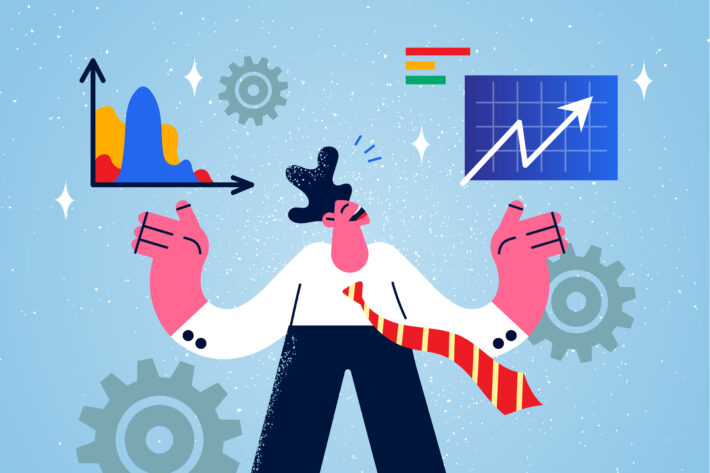How Does the CRM Software You Choose Affect Your Sales?

Let’s be real—sales can be tough. Every little edge can make a huge difference. Whether you’re celebrating big wins or grinding through tough times, the tools you use can make or break your success. And at the heart of any winning sales team is customer relationship management (CRM) software. It’s like your secret weapon that can either boost your team to new heights or slow you down if it’s not the right fit.
Choosing the right CRM isn’t just another task to check off your list. It’s a game-changing decision that impacts every part of your sales process, from nurturing leads to closing deals. So, it’s super important to understand how the CRM you pick can make your sales process smoother—or more challenging.
Why Do Salespeople Need CRM Software?
In today’s fast-paced business world, sales teams are constantly under pressure to drive revenue, keep customers happy, and outpace the competition. And let’s not forget the sales engineers who juggle both technical expertise and sales skills to meet complex client needs. To hit those goals, you need tools that don’t just get the job done but actually make your life easier.
That’s where CRM software comes in. Here’s a friendly rundown of why every salesperson—and especially sales engineers—needs a CRM in their toolkit:
1. Centralized Data Storage
Ever feel like your customer info is all over the place? A good CRM gives you one safe, central spot to store everything—customer contacts, sales opportunities, activities, and schedules. No more digging through random spreadsheets or sticky notes!
2. Task Prioritization and Scheduling
We’ve all been there, staring at a long to-do list and wondering where to start. A solid CRM helps you prioritize and schedule your tasks like a pro. And those weekly or monthly reports for management? They’re just a few clicks away, all automated and ready to go.
3. Automated Reporting
Sorting through messy data? No, thanks! With a CRM, you can easily slice and dice your data to find those golden opportunities. It’s like having a personal assistant who’s always on top of things.
4. Data Segmentation and Opportunity Identification
Sales is all about teamwork, right? A CRM makes sure everyone’s on the same page with shared calendars, document templates, and email integration. When everyone’s in sync, your teamwork and communication skyrocket.
5. Team Coordination and Communication
Timing is everything in sales. A CRM keeps track of all your customer interactions, so you know exactly when to follow up for product replacements, contract renewals, or upsells. More deals closed, more happy customers—it’s a win-win.
6. Streamlined Sales Cycle
The faster you can close a deal, the better, right? A CRM streamlines your entire sales cycle, helping your team hit those targets faster. And here’s the lowdown on sales cycles based on deal size:
- Deals around $2,000 in Annual Contract Value (ACV) usually close within 14 days.
- Deals around $5,000 in ACV take about 30 days.
- Deals around $25,000 in ACV generally close within 90 days.
- Deals around $100,000 in ACV can take 90-180 days, depending on how many decision-makers are involved.
- Deals over $100,000 in ACV might need 3-6 months to close.
7. Customer Need Anticipation
When you’ve got all your customer data right there in front of you, it’s like having a crystal ball. You can anticipate their needs before they even realize what they want, leading to happier customers and better sales.
8. Reduced Administrative Tasks
Nobody likes paperwork, right? A CRM takes care of storing product and price details, triggering reminders, and guiding you through the sales pipeline. Less time on admin tasks means more time doing what you do best—selling.
9. Cost Savings
Sure, CRM software isn’t free, but it’s worth every penny. It helps you avoid costly mistakes in orders or quotes and gets rid of the need for sticky notes covering your desk. The ROI on CRM is seriously impressive.
10. Improved Team Collaboration
Sales isn’t a solo game—it’s all about the team. A CRM helps everyone collaborate better by providing a central spot for sharing info, tracking progress, and coordinating efforts. When the team’s in sync, amazing things happen.
11. Customer Insights Gathering
A CRM isn’t just about managing data—it’s about uncovering insights. You’ll gather valuable info about your customers’ preferences, behaviors, and purchase history, so you can tailor your sales pitches perfectly. Personalized interactions lead to better results, plain and simple.
Impressive CRM Statistics Every Salesperson Should Know
Let’s get into the numbers. CRM software is a game-changer when it comes to boosting business revenue and growth. Here are some key stats that every salesperson should keep in mind:
- Over 9 out of 10 businesses believe CRM software is crucial to achieving their revenue goals.
- Effective sales teams are 81% more likely to consistently use a CRM platform compared to less effective teams.
- Two-thirds of companies start using a CRM within their first 5 years of being in business.
- Around 3 out of 4 businesses say CRM software gives them better access to customer data.
- 47% of businesses report that CRM software has a significant positive impact on customer retention.
- Report accuracy can increase by up to 42% with CRM software.
- Sales forecasting accuracy can also jump by up to 42% with CRM technology.
- Lead conversion rates can skyrocket by up to 300% with CRM.
- Revenue can grow by up to 245% when a CRM platform is properly utilized.
- Lead acquisition costs can be slashed by up to 23% thanks to CRM efficiency.
- For every $1 spent on CRM, the average return on investment is $8.71.
These stats show just how powerful a well-chosen and properly implemented CRM system can be for sales teams—and especially for sales engineers, who need precise data and seamless collaboration to close complex deals.
Conclusion: Ready to Choose Your CRM?
Choosing the right CRM software might feel like a big decision, but it’s one that can really pay off. The right CRM will make your sales process smoother, help you manage customer relationships better, and ultimately drive bigger and better business results. So, take the time to check out your options, think about what features your team needs most, and pick the CRM that’s going to set you up for success.
Want to replicate these remarkable CRM stats for your own business?
STAQ.ai provides an intelligent platform that guides businesses select the ideal CRM solution for their specific needs. STAQ.ai will walk you through the evaluation process, helping you navigate the complexities and nuances of various CRM platforms.



